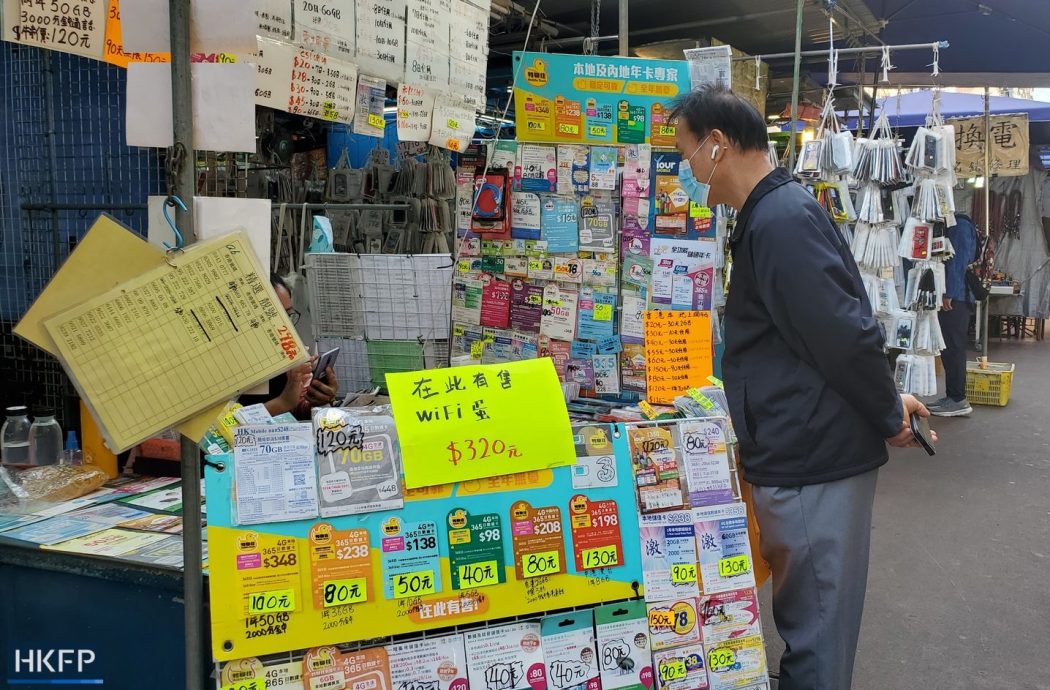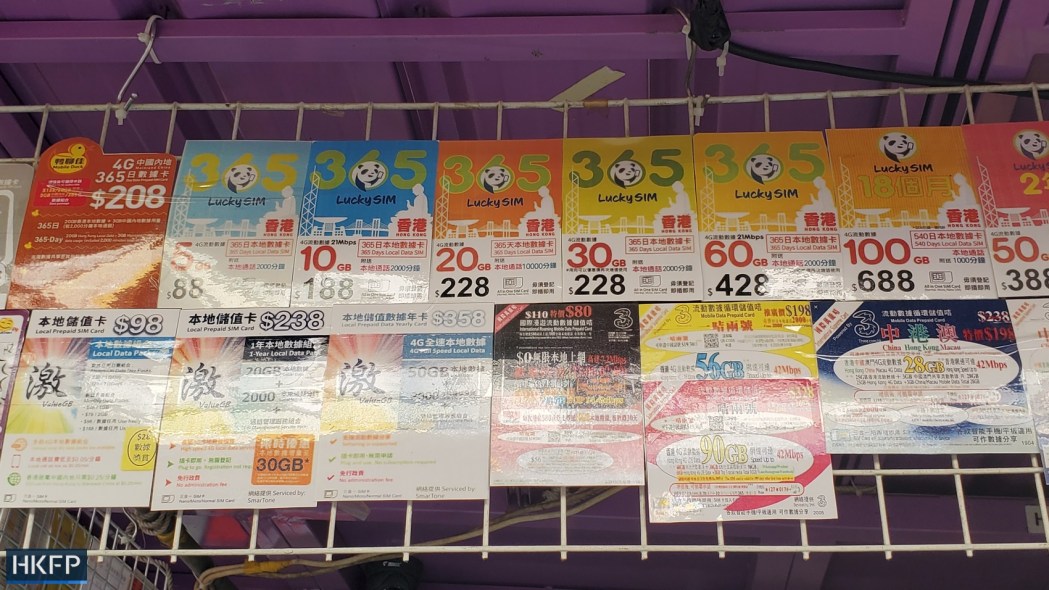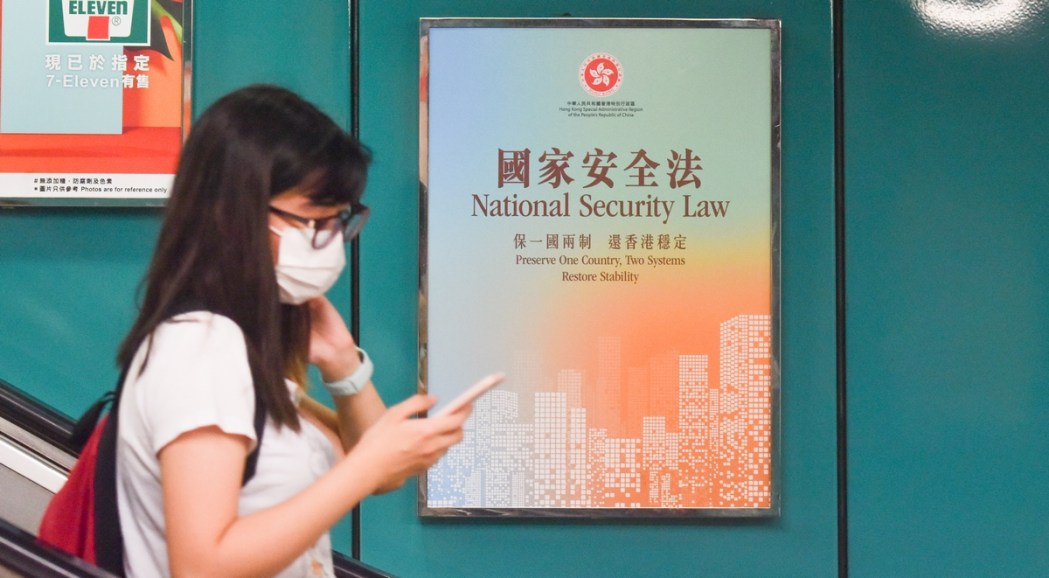Users of pre-paid local SIM cards will have to register their real names from next March in what the Hong Kong government describes as an overdue move to fight crime.
The Executive Council on Tuesday approved the new arrangements, which will allow law enforcement agencies to access users’ personal information when investigating crime.
People who buy pre-paid SIM cards will from March be required to provide their name, identity card number, date of birth, and a copy of their identification document.

The new regulations allow for a higher cap on the number of SIM cards which individuals and companies can use than was previously proposed, Secretary for Commerce and Economic Development Edward Yau announced.
Individuals will be limited to 10 cards per mobile service provider while companies will be restricted to 25 per provider. There are four main providers in Hong Kong.
Yau said the numbers were raised from the original proposal of three per party after a seven-week public consultation earlier this year. Over 100,000 people expressed their views during the consultation, the majority of whom were said to have supported the real-name registration.

“We have done extensive consultation with stakeholder meetings with over 20 sectors ,” Yau added. Around 70 per cent of the stakeholders supported the registration programme, the Commerce and Economic Development Bureau said in a statement.
The amendments to the Telecommunications Ordinance are set to be gazetted on Friday and tabled for negative vetting at the Legislative Council next Wednesday. Yau said implementation of the measures will begin by September 1 and proceed in two phases.

From September 1, operators will be given 180 days to implement a system to store customers’ registration details. Users, meanwhile, will be given 360 days to register their pre-paid cards after March 1, 2022.
The new measures mean all mobile cards purchased in Hong Kong will be linked to users’ personal details by February 23, 2023. Operators will have to store the information for 12 months after the phone is de-registered.
Around 11.7 million unregistered pre-paid SIM cards are currently in use in the city, accounting for around 56 per cent of total mobile cards. The SIM card user rate in Hong Kong averages out to around three per person.
‘Urgent and exceptional circumstances’
Yau said the new regulations were necessary to plug “gaping loopholes” in current regulations and allow law enforcement officers to better investigate crime.
“A lot of commercial crimes… are conducted by exploiting the anonymous nature of SIM cards,” he said. “If some of these cards end up with unscrupulous people, it will be easy for them to evade responsibility.”

The new regulations, however, will not cover SIM cards purchased abroad.
Yau said the measures would bring Hong Kong up to the “international standard.” Around 155 jurisdictions across the world have enforced similar registration requirements, including Australia, France, Malaysia and Taiwan.
Under the new arrangements, law enforcement agencies will be allowed to access the information without a warrant in “urgent and exceptional circumstances.”
“Such exceptional circumstances refer to those situation where there is reasonable ground for suspecting that a serious offence has been, is being, or is about to be committed that it is necessary to obtain the registration information of a SIM card user… and any delay caused by an application for a warrant may result in loss or destruction of evidence, or for any reason it is not reasonably practicable to make the application,” the consultation paper read.
Yau declined to clarify what such a scenario would entail. “[Whether] the nature of the crime is serious or urgent, it is not for this legislation to define. It is based on existing laws and legislation and also depending on law enforcement agencies when they discharge their work to decide,” the secretary said.

He added that there was “nothing exceptional” in the measures and there were similar provisions in other legislation, including the Crimes Ordinance, Dangerous Drugs Ordinance, Immigration Ordinance and Societies Ordinance.
When asked whether the new measures would be used to investigate national security crimes, Yau said that “if the law allows for the obtaining of information under such circumstances, that would be the case.”
The law grants police wider powers when investigating national security-related crimes, including searching private property without a warrant and requesting internet service providers to remove information.
Real name registration has been enforced in mainland China since 2010. The Hong Kong government’s proposal sparked privacy concerns from IT experts when announced in January.
Support HKFP | Policies & Ethics | Error/typo? | Contact Us | Newsletter | Transparency & Annual Report | Apps
Help safeguard press freedom & keep HKFP free for all readers by supporting our team

LATEST FROM HKFP
HKFP has an impartial stance, transparent funding, and balanced coverage guided by an Ethics Code and Corrections Policy.
Support press freedom & help us surpass 1,000 monthly Patrons: 100% independent, governed by an ethics code & not-for-profit.










